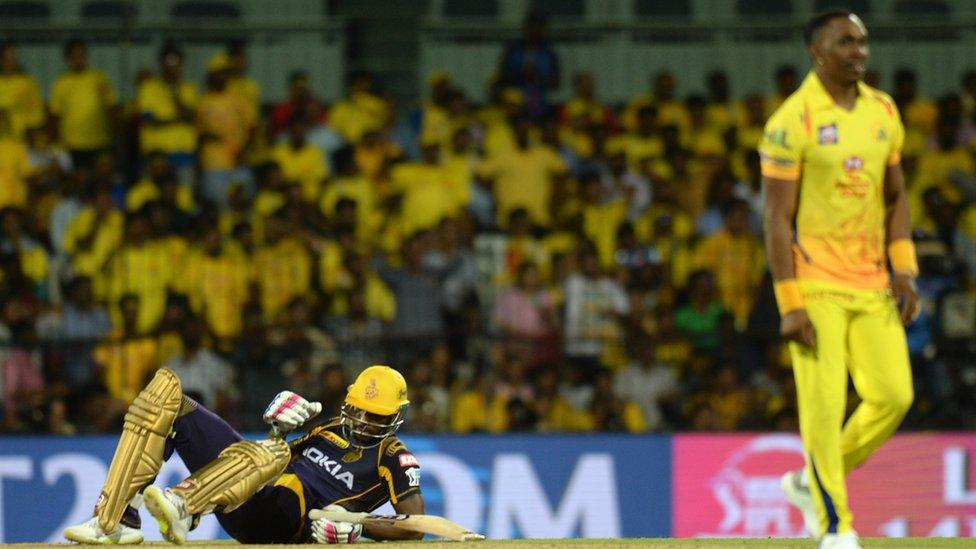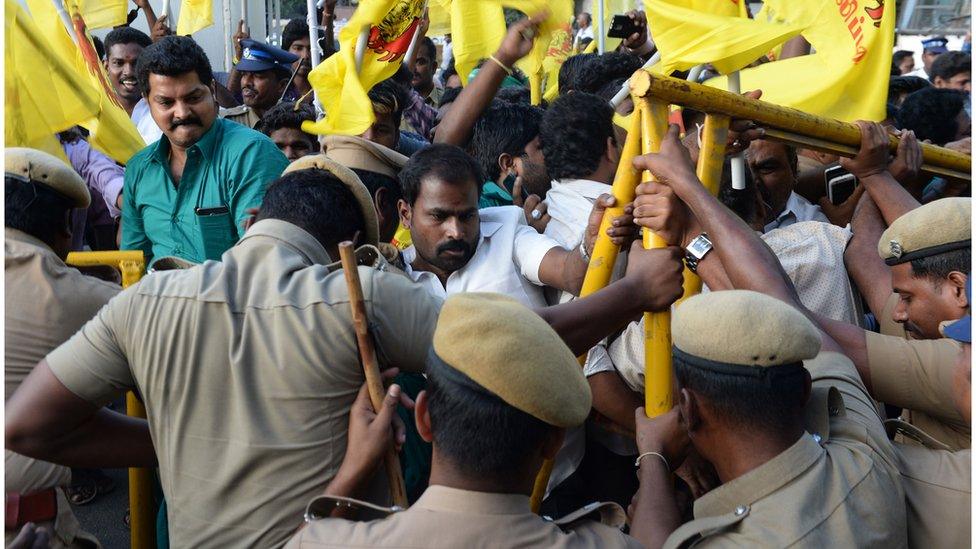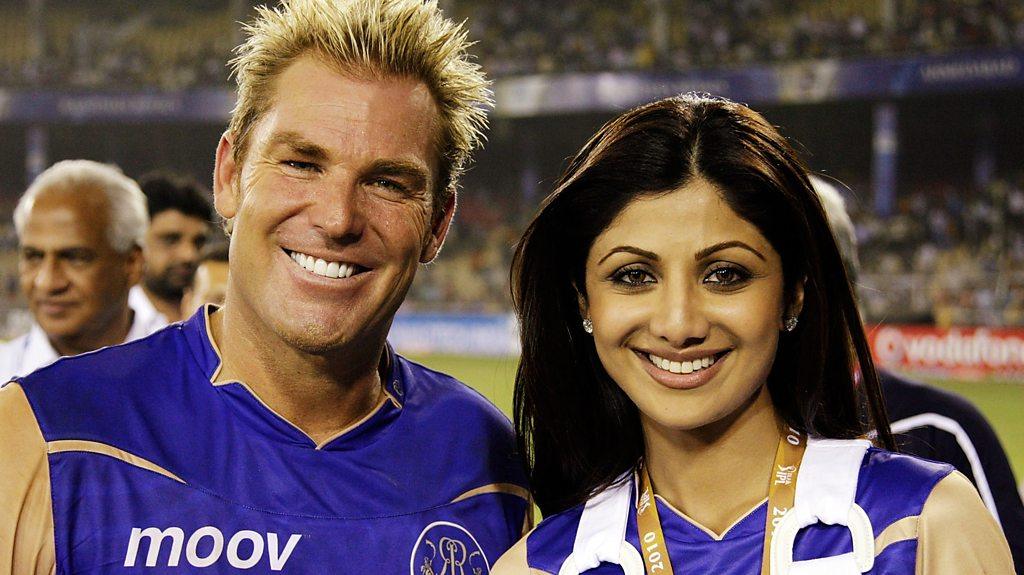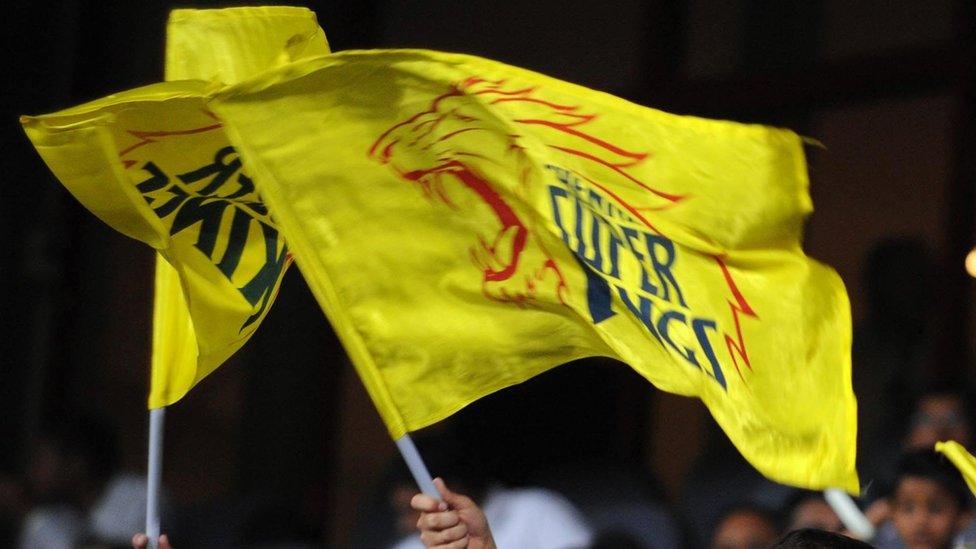IPL: Cricket matches moved out of Chennai
- Published

The Chennai Super Kings will not play their home games in the city
Cricket officials say the southern city of Chennai (formerly Madras) will not host Indian Premier League (IPL) matches due to security concerns.
The move comes after protests took place outside the Chepauk stadium during Chennai Super Kings' first home game on Tuesday.
The protesters in Tamil Nadu are angry over a water-sharing dispute with neighbouring Karnataka state.
The IPL is considered to be the world's showcase for Twenty20 cricket.
The Board of Control for Cricket in India hasn't announced a new venue for the Super Kings' home games.
Top Indian and international players take part in the annual tournament, making it one of the world's most-watched and richest cricket tournaments.
Cricket officials initially resisted calls to move the matches out of Chennai but agreed after Tuesday's protests.
"We had little option really. We did not want to deny the cricket fans of Tamil Nadu, the opportunity to support their team and savour the cricket but the local police were not willing to provide us adequate security," IPL chairman Rajeev Shukla told The Hindu newspaper, external.
Local media reported that two protesters threw a shoe on the ground, external during Tuesday's game.
And a Tamil group has threatened to release snakes on the ground, external if the Super Kings played more matches in Chennai.
The decision has disappointed the players.
Allow X content?
This article contains content provided by X. We ask for your permission before anything is loaded, as they may be using cookies and other technologies. You may want to read X’s cookie policy, external and privacy policy, external before accepting. To view this content choose ‘accept and continue’.
Allow X content?
This article contains content provided by X. We ask for your permission before anything is loaded, as they may be using cookies and other technologies. You may want to read X’s cookie policy, external and privacy policy, external before accepting. To view this content choose ‘accept and continue’.
Allow X content?
This article contains content provided by X. We ask for your permission before anything is loaded, as they may be using cookies and other technologies. You may want to read X’s cookie policy, external and privacy policy, external before accepting. To view this content choose ‘accept and continue’.
The matches in Chennai were expected to draw huge crowds as the home team returned to the IPL after a two-year suspension due to a corruption scandal.

On Tuesday, during the first match in Chennai, protesters gathered outside the stadium despite tight security.
On Monday, Tamil Nadu political parties had called for the matches to be cancelled amid escalating tensions with Karnataka.
There have been multiple protests over the Cauvery river, which Tamil Nadu and its neighbouring state Karnataka have staked a claim to. The dispute over sharing water dates to the 19th Century during British rule.
- Attribution
- Published6 November 2017

- Published10 April 2018
